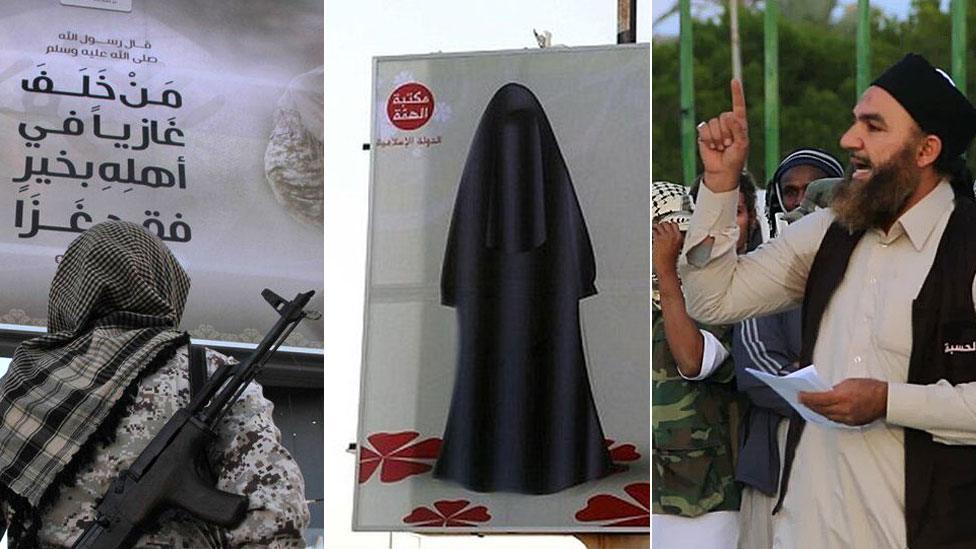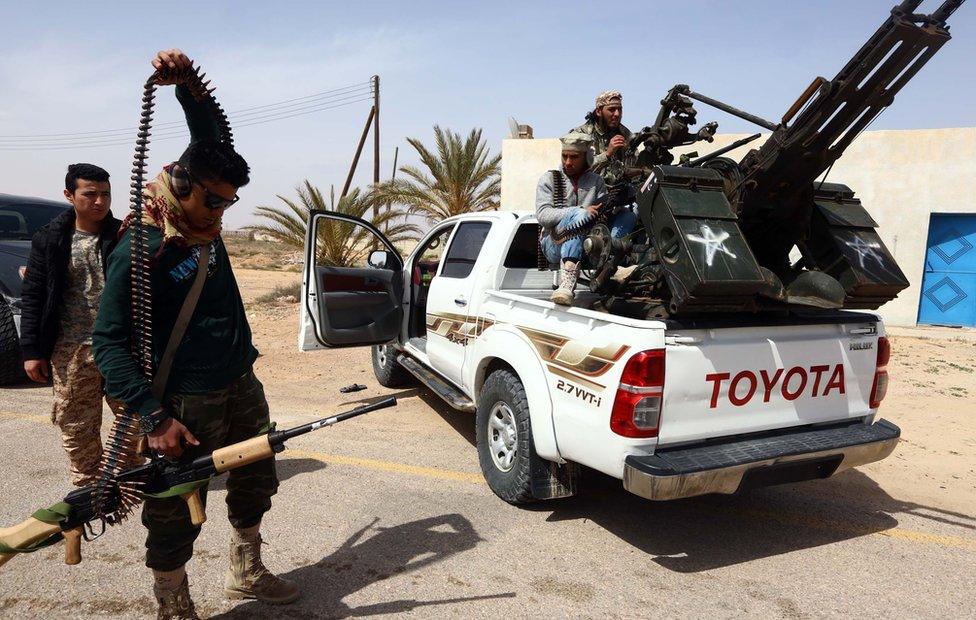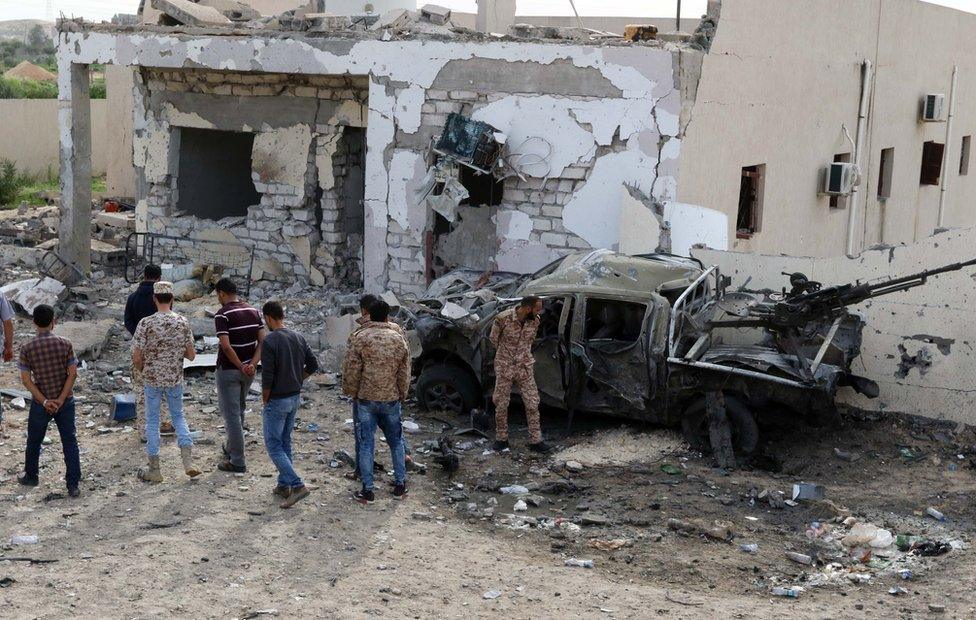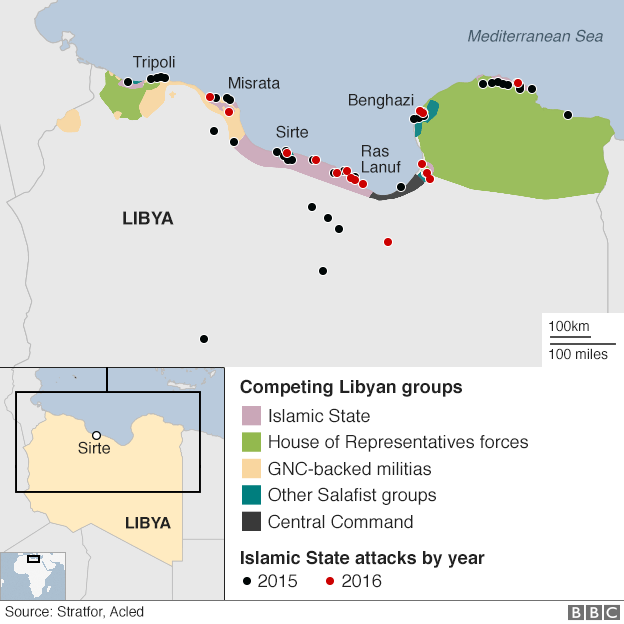Top IS commanders 'taking refuge' in Libya
- Published
"They view Libya as a safe haven": Ismail Shukri
Senior commanders from so-called Islamic State (IS) have moved to Libya from Iraq and Syria recently, a top Libyan intelligence official says.
The official told BBC Newsnight that increasing numbers of foreign fighters had arrived in the city of Sirte.
Representatives from 23 countries met in Rome on Tuesday to discuss the growing threat from IS in Libya.
IS took control of Sirte, the hometown of former Libyan leader Muammar Gaddafi, last year.
Disagreements between rival administrations in the country have hampered efforts to fight IS.
The Islamist group is believed to have received support from some loyalists of the former regime.
But Ismail Shukri, the head of intelligence in the city of Misrata, told Newsnight there had been an influx of foreign fighters in recent months.

More about Islamic State in Libya:


"The majority [of IS fighters in Sirte] are foreigners, around 70%. Most of them are Tunisians, followed by Egyptians, Sudanese and a few Algerians.
"Add to that the Iraqis and the Syrians. Most of the Iraqis come from Saddam Hussein's disbanded army."
Mr Shukri said senior IS commanders were taking refuge in Libya, under pressure from international airstrikes in Iraq and Syria.
"Some of their members, especially those with long-term importance to IS, are taking refuge here. They view Libya as a safe haven."

Authorities in Misrata say they are preparing an offensive against Islamic State militants in Sirte.
But in the town of Abugrein, 120km (75 miles) south of Misrata, the BBC saw little evidence of an imminent confrontation.
Abugrein represents the final line of defence against IS. Beyond that, IS controls the road east.
Commanders in Abugrein told Newsnight that their forces, loyal to the government in Tripoli, numbered around 1,400 - less than half the estimated strength of IS.

Find out more
Watch Gabriel Gatehouse's report on Our World on the BBC News Channel and BBC World News (click for transmission times). Readers in the UK can watch it after 04:30 GMT on Saturday on the BBC iPlayer

Mohammed al-Bayoudi, a commander with Battalion 166, acknowledged that, without international help, they would not be able to defeat IS.
"Certainly we would welcome Nato support. But air strikes alone cannot defeat IS. What the army really needs is logistical support."
The prospect of international military involvement in Libya is a vexed topic. The United States has acknowledged that it has sent in small numbers of special forces on at least one occasion in recent weeks.
Similar groups from other Nato countries are also understood to be exploring potential local allies on the ground for a looming battle with IS.

But fighters in Abugrein said they did not want to see Western boots on the ground.
"We Libyans will fight. There is no need for foreign troops," said Mr al-Bayoudi.
Western governments, including the UK, are becoming increasingly concerned, and impatient.
A proposed Italian-led training force, with up to 6,000 troops from a number of Nato countries including the UK and France, has yet to be agreed.
A major stumbling block is a lack of consensus from Libya's rival parliaments.
A UN-brokered deal to create a unity government has stalled, amid opposition from both the Islamist-backed authorities in Tripoli and the internationally recognised government in Tobruk in the east.
